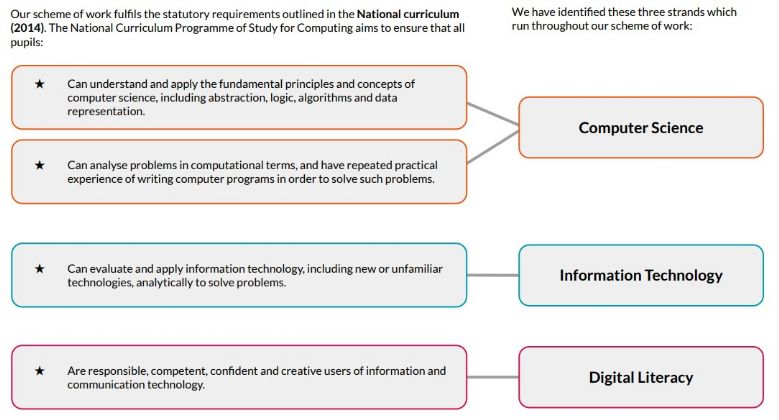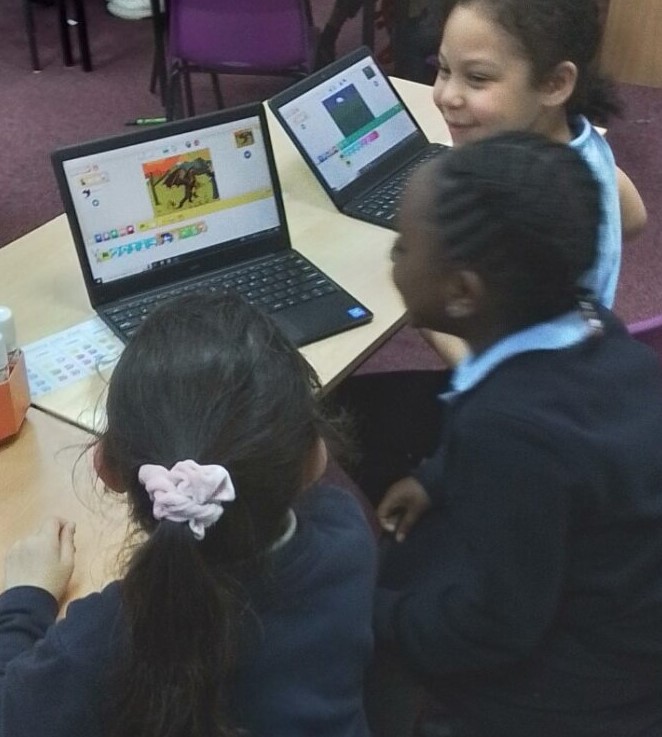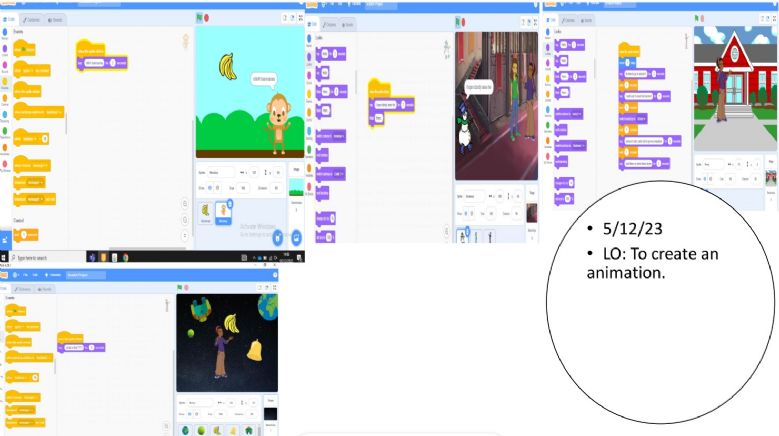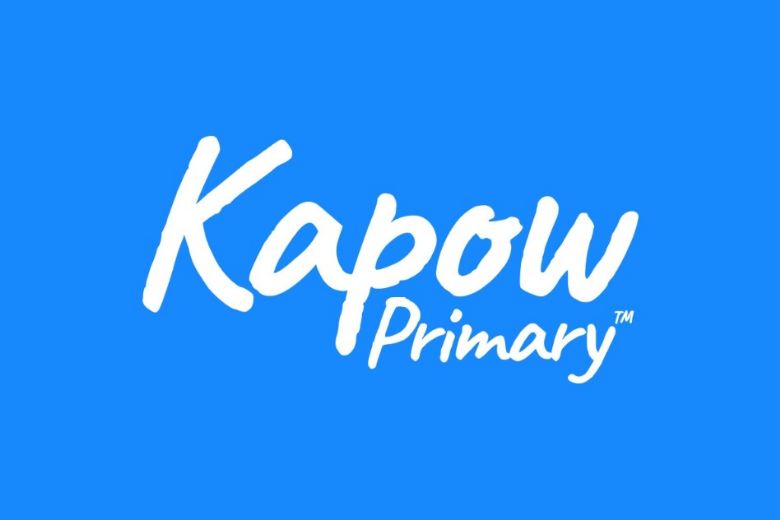Computing
Intent for Computing
In a world where technology is constantly evolving, the pupils of St Thomas will embrace it rather than be intimidated by it.
Using the Kapow curriculum, alongside computing across the curriculum, encompassing computer science, information technology and digital literacy, we wish for our pupils to become creators and computer scientists who live and breathe technology.
Our vision is that computing at St Thomas flips the switch of excitement, intrigue and ingenuity in our learners. Through regular training opportunities, our staff also share the same vision and, by encouraging our teachers to try and embed computing across the whole curriculum, this becomes a whole school journey to make learning more creative, exciting and accessible. If we can provide opportunities in school for our pupils, who may not have these experiences outside of school, to use different forms of hardware and software, we may just kick-start a life-long passion and a career for the future.
It is our belief that the children first and foremost are taught how to use technology responsibly and safely; education is they key element in preventing the wide variety of issues we currently see with technology/social media. As educators, we need to face these issues head on and want our pupils to understand that there is always a choice with using technology. As a school, through our own social media uses such as classroom dojo, we model positive practice and showcase children’s learning throughout school.
We recognise that technology can allow pupils to share their learning in creative ways. In conjunction with our themes, we want our pupils to be fluent with a range of tools to best express their understanding – we are constantly looking at ways to present work in a more creative way. This is in the hope that by the end of Key Stage 2, the children of St Thomas have been exposed to a range of hardware, software and, most importantly, they have been switched on by computing.

Implementation
At St Thomas, we ensure all of our children are equipped and prepared for the digital world by following the broad and balanced Kapow curriculum. The Kapow computing scheme enables all learners to access the national curriculum, enhancing their knowledge, demonstrating a progression of skills which builds on from prior learning. Teaching computing both discretely as a subject, and through the wider curriculum allows the children to develop and embed their skills. Each class have termly computing objectives, these are taught discretely during computing lessons that cover 3 key areas; computer science, digital literacy and information technology.

Kapow Primary’s Computing scheme of work enables pupils to meet the end of key stage attainment targets outlined in the national curriculum and the aims align with those in the national curriculum. When used alongside our Jigsaw PSHE scheme our Computing scheme of work also satisfies the objectives of the DfE’s 'Education for a Connected World framework'. This guidance was created to help equip children for life in the digital world, including developing their understanding of appropriate online behaviour, copyright issues, being discerning consumers of online information and healthy use of technology.

We have used Kapow to map: Spiritual, Moral, Social and Cultural development of our children to the Computing units according to Ofsted's SMSC descriptors. Within this, it also shows which of our units support promotion of the fundamental British values: Democracy, Rule of law, Individual liberty, Mutual respect and Tolerance of those with different faith and beliefs.
Impact
Children’s progress is assessed through questioning and monitoring. It is also assessed at the end of each unit, which identifies the children who need extra support, or those who have excelled and require more challenge. This informs the teacher on their summative assessment tracker, which is completed after every unit.
Often the work is built upon each week to create a final product by the end of the unit. The children love computing and really engage with the subject.

Computing is an always evolving area in the world. The children will leave our school ready with a firm understanding of basic computer science, information technology and digital literacy.


